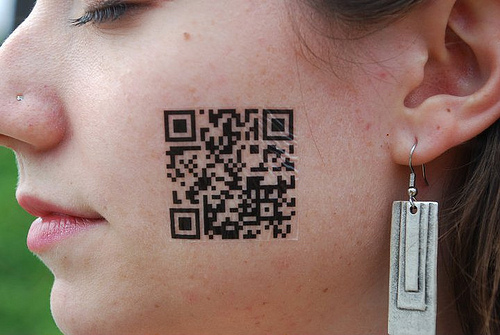 Face recognition software has been available for awhile, but we’ve only seen it implemented into consumer-level products recently. Facebook rolled out its automatic photo-tagging service earlier this year, which continues to concern users to varying degrees, and iOS 5 and Google products are likely to sport applications running face recognition technology.
Face recognition software has been available for awhile, but we’ve only seen it implemented into consumer-level products recently. Facebook rolled out its automatic photo-tagging service earlier this year, which continues to concern users to varying degrees, and iOS 5 and Google products are likely to sport applications running face recognition technology.
Reactions have been everything from complete acceptance to shocked outrage. What’s one more piece of information for these platforms? Apple, Google, and Facebook already know everything about us, so why not integrate this data into a useful feature? On the other hand, if a Website that already holds everything about you can also recognize you, does that mean privacy and anonymity are officially dead for Internet users? It also means you could image search for a person with nothing but a photo of them–which has plenty of upsetting implications.
But with the slow and minimal product roll outs we’ve seen thus far (and the ability to uninstall them), the scare factor lies mostly around the “could bes” and “what ifs.” That clearly is not the case anymore: Researchers at Carnegie Mellon University said that with nothing but a photo, they could identify strangers, and that part of time these photos coupled with information from Facebook, social security numbers could be partially predicted.
According to a press release, the study was led by associate professor of information technology Alessandro Acquisti. He and his team want to reveal the power of a photo paired with social networks. “In one experiment, Acquisti’s team identified individuals on a popular online dating site where members protect their privacy through pseudonyms. In a second experiment, they identified students walking on campus – based on their profile photos on Facebook. In a third experiment, the research team predicted personal interests and, in some cases, even the Social Security numbers of the students, beginning with only a photo of their faces.”
The study also took the photos of about 90 students, which were then uploaded and compared to hundreds of thousands of Facebook photos from the profiles of students from the same school. In seconds, there were 10 possible matches, and the participants confirmed their images were found more than 30 percent of the time. So while this system isn’t foolproof (yet), it works and could easily be exploited in the wrong hands.
Privacy in the Internet age continues to be a moving target, but this latest step forward could very well mean the end of it for social network users. If you want to have a Facebook, Google+, Twitter, or whatever profile and allow photos to be a part of that, it means you could very well be sacrificing your anonymity. As digital and actual realities continue to merge into one existence, it means that the possibility of going unidentified and being Internet user is less and less likely.
The study also questions what this means for human interaction. Will we default to our social networks and electronic devices to identify and asses a person, or will we rely on personal experiences and instincts? It’s unlikely anything will be able to halt this evolution, so it’s important to consider how our privacy and relationships may be changing –and to try and limit the impact it has by staying as human as possible.

